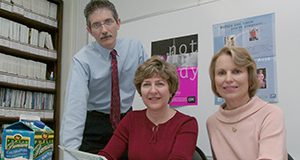Consumers need to know who is qualified to practice nutrition or dietetics before seeking nutrition advice. This 3-page fact sheet is a major revision that provides information about dietetic registration and licensure. Written by Linda B. Bobroff, and published by the UF Department of Family, Youth and Community Sciences, revised June 2016.
http://edis.ifas.ufl.edu/fy690
Tag: Nutrition Counseling
Registration and Licensure of Nutrition Professionals in Florida (FCS8765/FY690)
 Registration and licensure of nutrition professionals exist to protect the public from people who are not qualified to practice as nutrition professionals, just as licensure of physicians protects the public from people who are not qualified to practice medicine. This 3-page fact sheet provides information about dietetic registration (a national credential) and licensure (a state-specific license). Florida has three credentials that allow people to legally practice as a nutrition or dietetics professional: Registered Dietitian (RD), Licensed Dietitian/Nutritionist (LD/N), and Licensed Nutrition Counselor (LNC). Written by Linda B. Bobroff, and published by the UF Department of Family Youth and Community Sciences, September 2012.
Registration and licensure of nutrition professionals exist to protect the public from people who are not qualified to practice as nutrition professionals, just as licensure of physicians protects the public from people who are not qualified to practice medicine. This 3-page fact sheet provides information about dietetic registration (a national credential) and licensure (a state-specific license). Florida has three credentials that allow people to legally practice as a nutrition or dietetics professional: Registered Dietitian (RD), Licensed Dietitian/Nutritionist (LD/N), and Licensed Nutrition Counselor (LNC). Written by Linda B. Bobroff, and published by the UF Department of Family Youth and Community Sciences, September 2012.
http://edis.ifas.ufl.edu/fy690
